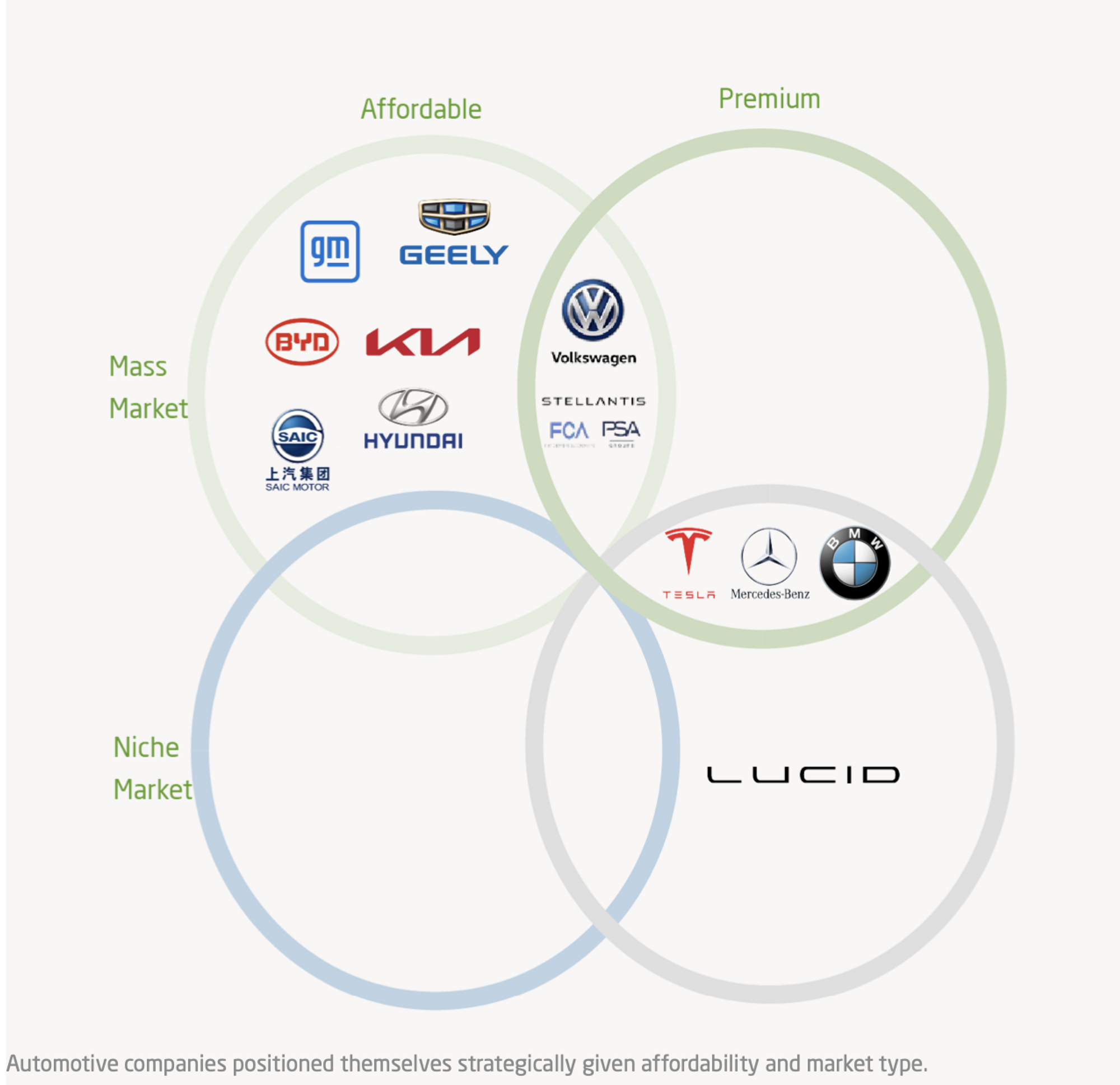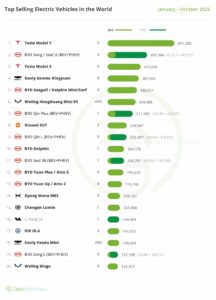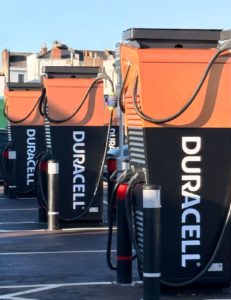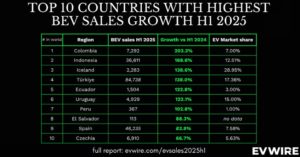The company’s showrooms were located in shopping malls, and it sold directly to consumers, eschewing the traditional dealership model. Tesla’s experience is similar to buying an Apple product, with sleekly designed stores guided by knowledgeable salespeople. Consumers could also purchase their cars online, a concept unheard of in the automotive sector at the time.
Tesla’s success has inspired several entrepreneurs to try their luck in becoming the next major EV manufacturer. Many have tried and failed, but those that have weathered the early days’ storms, mainly through financial backing and sound managerial decisions, have succeeded. However, Tesla still leads the pack in terms of market share.
Asian companies like BYD, Nio, and Xpeng are targeting the mass market by offering their models at affordable prices. In contrast, traditionally high-end brands like Mercedes-Benz are positioning themselves between mass and niche markets, charging a premium for quality and design. Lucid, on the other hand, has capitalized on gaps by positioning itself in the premium niche market.
Source: Market in Focus: Battery Electric Vehicles (BEV) in the Kingdom | SIDF







